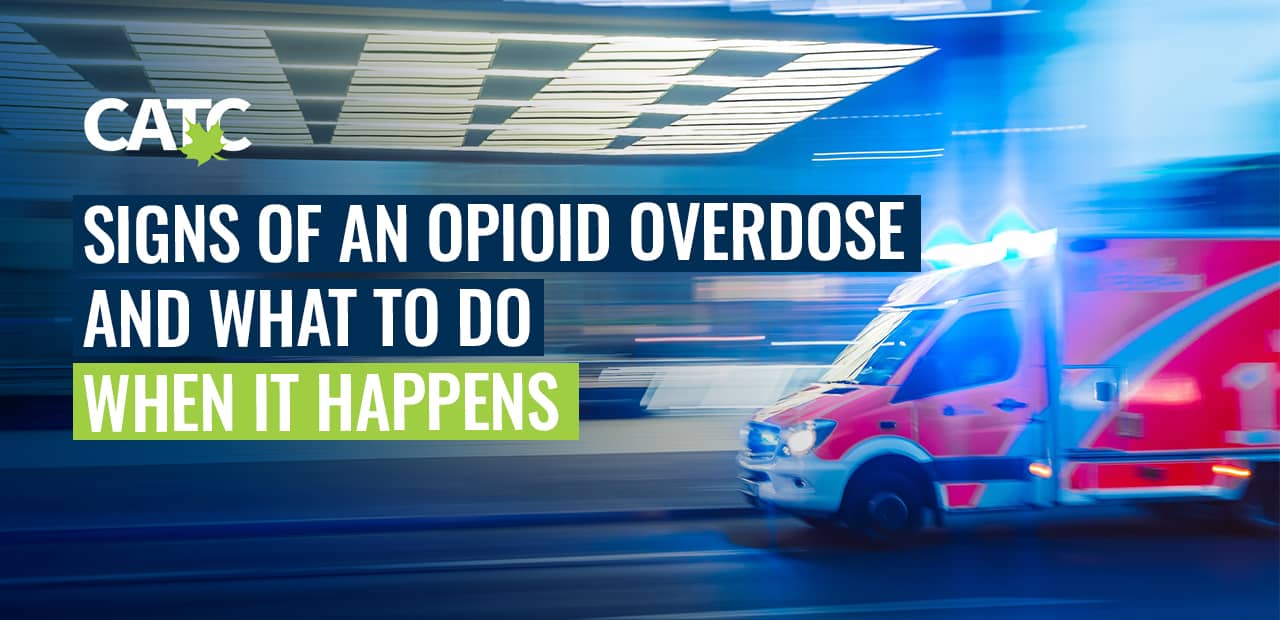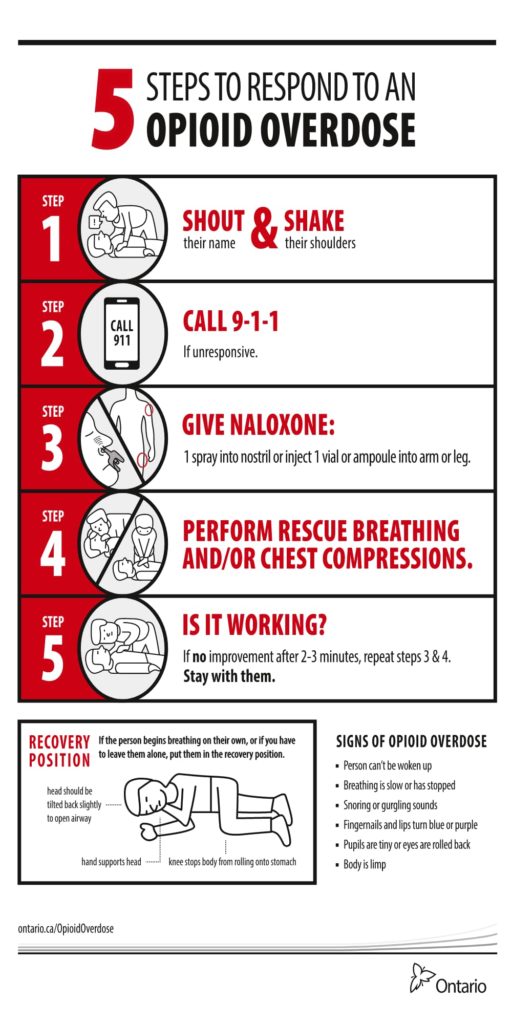Signs of an Opioid Overdose and What to Do When It Happens
Signs of an Opioid Overdose and What to Do When It Happens
Opioids — which include drugs like heroin, fentanyl, codeine, morphine, hydromorphone, oxycodone, methadone and buprenorphine — are sometimes prescribed to treat and manage pain. However, these drugs can also be dangerous when misused.
In Canada, opioid overdoses and deaths are an ongoing crisis, with the number of hospitalizations and deaths steadily rising. Between 2016 and 2021, there have been 29,052 apparent opioid toxicity deaths nationwide. While opioid overdoses are becoming more common, learning to recognize an overdose could help you save a life.
Recognizing an Opioid Overdose
Misuse of opioids can lead to dependence, substance use disorders, and even overdose. Signs that someone may be experiencing an overdose include:
- Difficulty breathing
- Choking, snoring or gurgling sounds
- Discoloured lips, fingernails or skin
- Pinpoint (tiny) pupils or eyes are rolled back
- Slow and shallow breathing, or breathing has stopped
- Nausea or vomiting
- Changed mental state
- Unresponsive to outside stimulus
- Loss of consciousness
- Spasms or seizures.
- Low blood pressure
- Weak or erratic pulse
What to Do if You Suspect Someone Has Overdosed?
When someone overdoses on opioids, it’s important to act quickly. There are several things you can do to help:
- Call 911 immediately. Explain what symptoms the individual is experiencing and follow any directions while you wait for the ambulance.
- See if you can get the person to respond to sounds or to you shaking them or rubbing their sternum.
- If they are not responding, administer a dose of naloxone. If no improvement after 2-3 minutes administer another dose.
- If the person is breathing on their own, roll them onto their side to prevent them from choking if they vomit.
- Stay with the person until emergency assistance arrives.
What Is Naloxone and How Can It Save People From Overdosing?
Naloxone (also known as Narcan®) works by binding to the same receptors in the brain as opioids, helping to stop an overdose (click to view a PDF). It’s important to keep in mind that this medication can’t fully stop an overdose — emergency medical treatment is still required. However, administering naloxone stops an opioid overdose for long enough that medical professionals have time to arrive on the scene.
In Canada, Naloxone is available without a prescription. It’s available in two forms — an injectable and the nasal spray. If a person receives one of these two forms of naloxone and then medical treatment, their chances of dying from overdose are greatly reduced.
Naloxone is safe for all ages, and only works if you have opioids in your system. It won’t harm someone if they are overdosing on drugs other than opioids. You cannot use naloxone improperly and it does not create dependence.
People who step up to help someone in an emergency situation are protected under the Good Samaritan Act. Generally, anyone who provides emergency medical aid to an ill, injured or unconscious person at the scene of an emergency can’t be sued for injuries or death caused by the rescuer’s actions.
What Are the Risk Factors for an Opioid Overdose?
There are many different risk factors for an opioid overdose:
- Using prescription opioids without medical supervision
- Taking opioids by injection
- Combining opioids with alcohol or other medications like anesthetics or antidepressants
- Having to take a high prescribed dosage of opioids
- Reusing opioids after treatment or detoxification
- Having an illness such as kidney damage or a mental health condition
What Should You Do if You Suspect Someone Is Misusing Opioids?
If you suspect someone you know is struggling with opioids or displaying signs of Opioid Use Disorder, encourage them to seek medical and professional help immediately. At Canadian Addiction Treatment Centres, we provide evidence-based addiction treatment. By combining integrated medical, pharmacy and personalized support services, we meet the holistic needs of our patients. Naloxone kits are available at any of our clinics, and they save lives. Stop by your nearest location to get yours today!
To learn more about how our opioid treatments could help, reach out to CATC.

